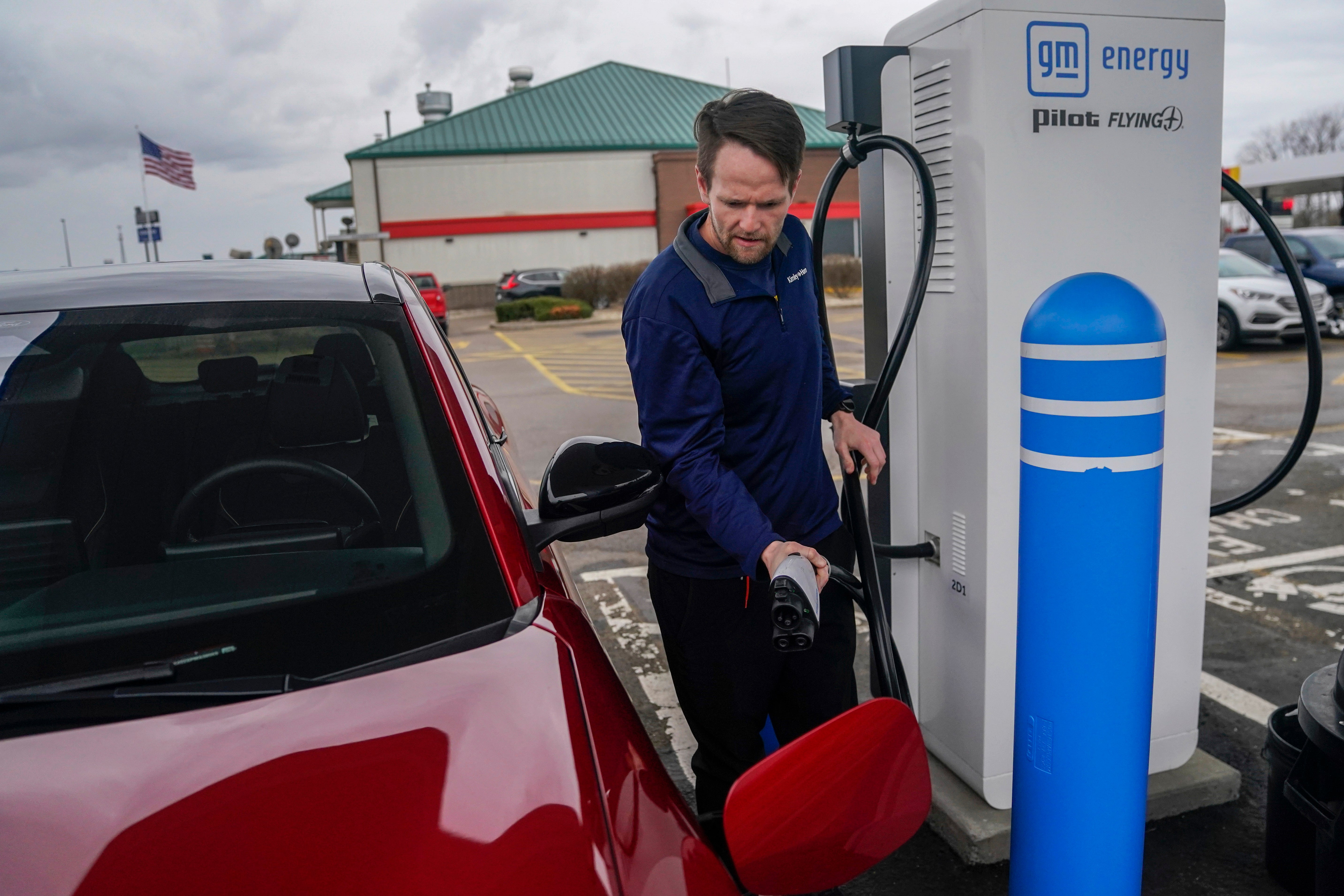US government builds seven electric vehicle chargers in two years. Just another 499,993 to go
Despite concerns at the slow pace, transport officials say 500,000 public charging stations will be available nationwide by 2027
Your support helps us to tell the story
From reproductive rights to climate change to Big Tech, The Independent is on the ground when the story is developing. Whether it's investigating the financials of Elon Musk's pro-Trump PAC or producing our latest documentary, 'The A Word', which shines a light on the American women fighting for reproductive rights, we know how important it is to parse out the facts from the messaging.
At such a critical moment in US history, we need reporters on the ground. Your donation allows us to keep sending journalists to speak to both sides of the story.
The Independent is trusted by Americans across the entire political spectrum. And unlike many other quality news outlets, we choose not to lock Americans out of our reporting and analysis with paywalls. We believe quality journalism should be available to everyone, paid for by those who can afford it.
Your support makes all the difference.Two years ago, the US government provided $7.5bn to create a national network of electric vehicle (EV) charging stations. To date, seven have been built.
The money came from the $1 trillion Bipartisan Infrastructure Law, signed by President Joe Biden in November 2021, to build 500,000 EV chargers by 2030.
But despite concerns from some lawmakers, transport officials are confident that half a million will be publicly available by 2027, making EV charging “as easy as finding a gas station”.
The Federal Highway Administration told The Independent that the slow pace has been deliberate, to avoid costly mistakes while navigating a brand-new law and building a network from scratch. States are also getting to grips with rolling out an infrastructure that many have next to no experience in.
The Biden administration wants to cut America’s carbon footprint in half by 2030, and a sweeping shift from gas and diesel-powered cars to electric ones is very much part of the plan. Transportation is the US’s largest source of emissions.
Mr Biden wants 50 per cent of all new vehicle sales to be electric by 2030 - a big leap from their current 7.6 per cent share of the total US vehicle market. Earlier this month, his administration announced stricter emissions standards for passenger vehicles to help spur that transition.
But getting stranded without a charge remains a major hurdle for many potential EV buyers. About 80 per cent of respondents in a 2023 survey from AP-NORC and the University of Chicago cited concerns about a lack of charging stations as a reason not to buy electric.

The seven charging stations, with a total of 38 ports, had been delivered in Ohio, New York, Pennsylvania and Hawaii by government funding.
Many more chargers are expected to come online this year, FHWA said. Some 33 states have either issued proposals or awarded contracts, and eight states have broken ground on projects.
The White House, Department of Transportation, and Department of Energy did not respond to requests for comment at the time of publication.
As part of the US charging station rollout, $4.75bn is being distributed to states along with an additional $2.5bn through a competitive grant program for charging stations in rural areas and disadvantaged communities. Rural drivers face greater challenges finding EV chargers which tend to be clustered in urban areas.
The Biden administration has said that EV chargers have increased by 40 per cent since he took office and there are now 175,000 nationwide.
The government also hopes that the public-funded charging station rollout will spur the private sector as has been the case when it comes to renewable energy and battery storage. Companies including Walmart, Uber, Zipcar, and the National Automobile Dealers Association have promised to expand their charging networks.
However, still more will be needed, experts have said. The National Renewable Energy Laboratory at the US Department of Energy reported last year that the US will need 1.2 million public chargers by 2030 to support the massive increase in electric cars.

Join our commenting forum
Join thought-provoking conversations, follow other Independent readers and see their replies
Comments